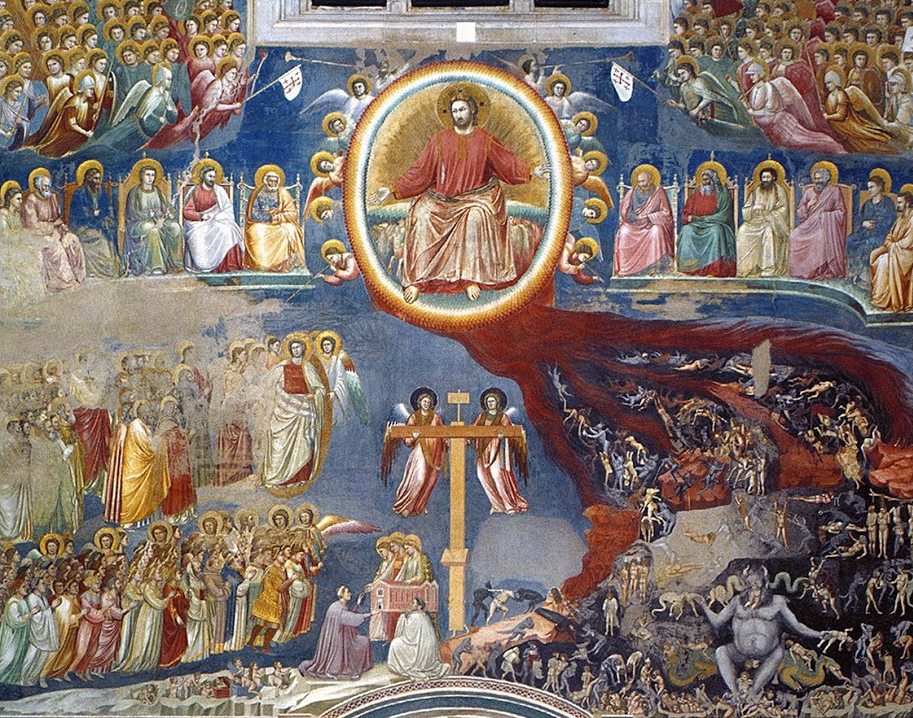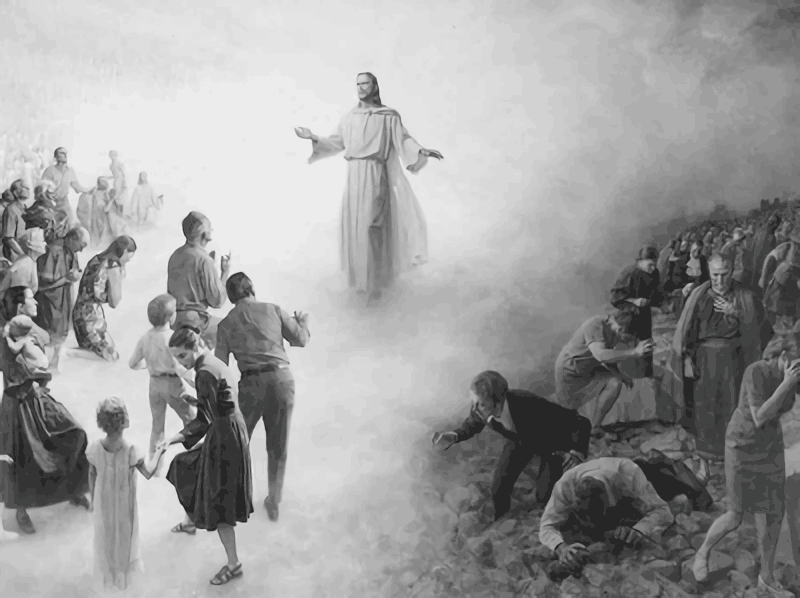Bethlehem Lutheran Church, Lebanon, OR
Second to Last Sunday of the Church Year + November 17, 2019
Text: Matthew 25:31-46
This is one of the most uncomfortable passages of Scripture to read, because it leaves us with questions of, have I been good enough to stand on the Lord’s right hand? What does it take to be counted with the righteous?
I could give you the Lutheran pat answer that ultimately we are saved by grace through faith in Christ, and that’s what qualifies the righteous to stand on His right. Amen. End of story, go in peace.
But that would be whitewashing the Lord’s message is here. Another related passage that makes us uncomfortable is these words from James 2:
“20 Do you want to be shown, you foolish person, that faith apart from works is useless? 21 Was not Abraham our father justified by works when he offered up his son Isaac on the altar? 22 You see that faith was active along with his works, and faith was completed by his works; 23 and the Scripture was fulfilled that says, “Abraham believed God, and it was counted to him as righteousness”—and he was called a friend of God. 24 You see that a person is justified by works and not by faith alone.” (James 2:20-24)
To rightly understand salvation by grace through faith, we need to know that Jesus is more than the salvation version of the Staples “Easy” button—all you have to do is believe in Jesus and you’re set! Or put another way, when he said, “Your faith has saved you; go in peace” that wasn’t the end of the story.
What makes us uncomfortable about this passage in the Gospel is that we live in light of the final judgment—“He will come again with glory to judge both the living and the dead, whose kingdom will have no end.” And what’s uncomfortable and hard is that believing in Jesus is not a once-and-done, instant trip to eternal life. Like Abraham, that faith is put to the proof.
In Romans 10:10, St. Paul says, “With the heart one believes and is justified, and with the mouth one confesses and is saved.” Faith operates in the heart, but it actually does change the heart it occupies. Each week, we say—God forbid that it just be out of routine—“I, a poor miserable sinner confess unto You all my sins and iniquities…and I am heartily sorry for them and sincerely repent of them.” (LSB 184) However, if we say that and there is no movement in the heart or intent to lead a God-pleasing life, that confession is nothing but straw—straw that will be tested by the fires of Judgement Day.
In Luke 3, when the crowds are answering God’s call through John the Baptist, he told them, “Bear fruits in keeping with repentance…and the crowds asked him, ‘What then shall we do?’ And he answered, ‘Whoever has two tunics is to share with him who has none, and whoever has food is to do likewise.’” (3:8, 10-11) Genuine repentance is manifested a changed heart, and an effort to change behavior.
In Ezekiel 36, the Lord says, “I will give you a new heart, and a new spirit I will put within you. And I will remove the heart of stone from your flesh and give you a heart of flesh. 27 And I will put my Spirit within you, and cause you to walk in my statutes and be careful to obey my rules.” (36:26-27) This is what it looks like when God works faith in you.
Faith gives you a new heart. Of course, it removes the love of sinning, intentionally doing those things which anger God. But faith also includes the work of renewal.
When Jesus says, “I was hungry and you fed me, I was thirsty and you gave me drink…” These were all things which God created humanity to be. They’re an echo of the good He originally made us to be, but there is so much evidence of how our hearts have changed. It’s sin that has hardened our hearts—toward God and toward each other. We go from being people who have compassion to finding excuses why it’s not our problem or why they deserve the hard lot they have.
As I left California behind, I remember listening to the Stevie Ray Vaughan song, “Crossfire,” in which he sings, “Day by day, night after night; Blinded by the neon light/ Hurry here, hustlin’ there/ No one’s got the time to spare/ Money’s tight, nothin’ free/ Won’t somebody come and rescue me?” At the time, I thought this coldness was just a symptom of overcrowding or politics, and that moving to a smaller city in Washington would be the answer. Of course we recognize that this is not the kind of society we want to live in, and yet we find ourselves being a part of that problem every day. That’s because it’s a symptom of the hardness of heart that sin has brought about in us.
But through the “washing of regeneration and renewal by the Holy Spirit” in Holy Baptism (Titus 3:5), God not only gives the gift of trust in Christ, but also a heart being renewed to be like our Creator once more (Col. 3:10). With that renewed heart, we are able to look at those around us less as inconveniences to be avoided, but as people made in the image of God and loved by Him!
One last thing about this regenerated heart, lest we should think Christianity is not much more than a moral system like Buddhism: Notice what the works were: Feed the hungry, give drink to the thirsty, welcome the stranger, clothed the naked, visiting the sick and imprisoned. These people who God turns our heart toward aren’t just the easy cases—the family and friends you get along with, those who are self-sufficient and fun to hang out with. These are people in need, and God will give you a heart for them. Faith can only be said to be His work, because who in their right mind would care about hungry, thirsty, naked strangers, who are sick and imprisoned? Oh, that’s right, our Lord does. In the same way He cared about us when we were strangers and even enemies of God.
So, yes, it is true that the righteous receive an inheritance prepared from before the foundation of the world—“saved by grace through faith, not a result of works, lest any man should boast” (Eph. 2:8-9)—a true, living, and active faith, and you can know that you have this faith through the sorrow over your sins and your trust that only Christ—not anything you do—can make you acceptable in God’s sight. It is that genuine faith in which God’s mighty hand can be seen not only by Him, and also by our fellow man in need. As we live in the light of this Judgement, let your hearts not be fearful about the how much, because Christ has done it all to earn our blessed peace. As He calls you His own here on earth, He gives you a heart to show His mercy. May God’s gracious kingdom come among us, and bring to His right hand, as the psalmist declares:
You make known to me the path of life;
in your presence there is fullness of joy;
at your right hand are pleasures forevermore. (Ps. 16:11)
Amen. Go in peace.




